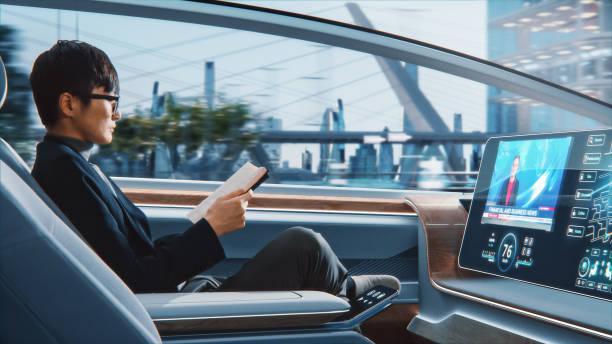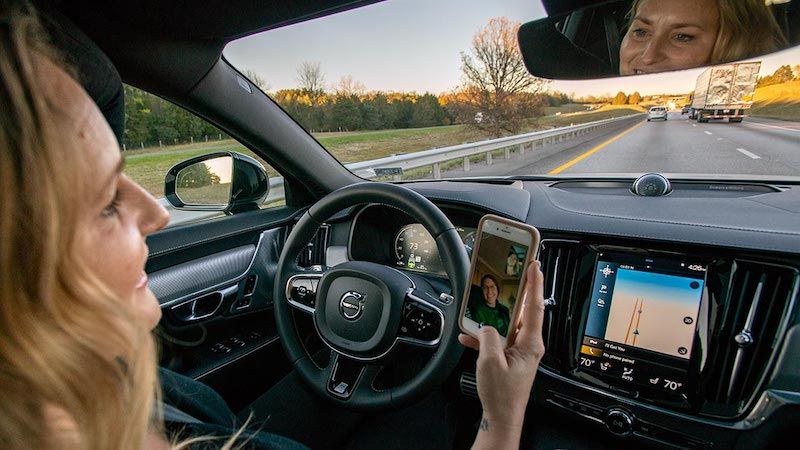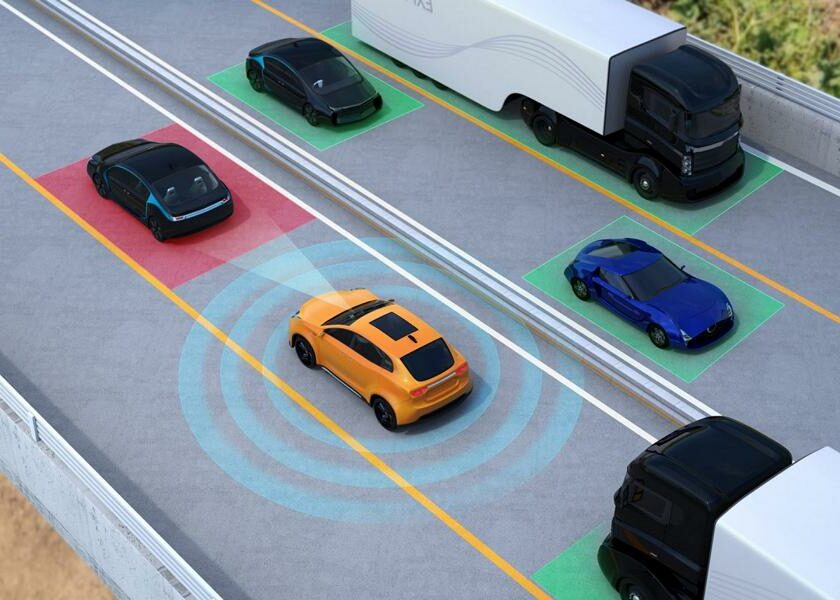Recently updated on September 11, 2023 at 01:33 am
[Display] The automotive industry has continuously evolved over the last century, revolutionizing transportation and changing society. The introduction of the Ford Model T and advances in electric vehicles (EVs) have brought significant advances. We will examine the concept of autonomous vehicles and explore their potential benefits, challenges and future.
What are autonomous cars?
Autonomous cars, also called self-driving cars or driverless cars, are equipped with cutting-edge technology that allows them to navigate and function without human intervention. These cars use a combination of sensors, cameras, GPS, and artificial intelligence (AI) algorithms to sense their surroundings, analyze data, and make informed decisions in real time. This groundbreaking Technology aims to reduce or eliminate the need for human drivers, leading to a safer, more efficient and more sustainable future of transportation.
Advantages of autonomous cars
One of the main reasons for the development of autonomous cars is their potential to significantly improve road safety. Human error is one of the main causes of road accidents and studies show that more than 90% of these accidents are due to human error. Autonomous vehicles minimize reliance on human judgment and reduce collisions and fatalities. The advanced sensors in autonomous cars can detect obstacles, pedestrians and other vehicles with exceptional precision and react faster than human reflexes ever could. Autonomous cars have the potential to revolutionize urban transportation and reduce traffic congestion.
Using AI algorithms, these vehicles can optimize routes, calculate ideal speeds and maintain an even spacing between vehicles, resulting in smoother traffic flow. This efficiency saves passengers time, reduces overall fuel consumption and emissions, thereby contributing to a greener environment. The advent of autonomous cars could be a game changer for people with mobility disabilities. Elderly people, people with disabilities and people who are unable to drive for various reasons can regain their independence with self-driving cars. By eliminating the need for a human driver, transportation becomes accessible to a wider range of the population, promoting inclusivity and equality.
Technological Challenges
While the promises of autonomous cars are compelling, automakers and tech companies must overcome some technical hurdles before they become commonplace on our roads. Self-driving cars are all about safety and reliability. Developers need to ensure the technology can handle complex and unpredictable driving scenarios, such as adverse weather conditions or unexpected roadblocks. To build public confidence in these innovative vehicles, rigorous testing and validation processes are essential. Autonomous cars are highly dependent on data and communication systems and are therefore vulnerable to cyber security threats.
A malicious attack on an autonomous vehicle network could have serious consequences. Therefore, developing robust security measures and encryption protocols to protect against potential cyber attacks is crucial. The integration of autonomous cars into existing transport systems requires an updated legal and regulatory framework. To deal with accidents or problems related to self-driving vehicles, clear guidelines on liability, insurance and safety standards must be established. In addition, international cooperation will be essential to ensure cross-border harmonisation.
Ecological damage
In striving for a greener future, autonomous cars play a crucial role in reducing the environmental footprint of the transportation sector. The convergence of autonomous technology with electric vehicles could be game-changing in the fight against climate change. Electric Autonomous Vehicles (EVs) offer a double advantage: they eliminate exhaust emissions and reduce the energy consumption of conventional vehicles. Advances in battery technology allow EAVs to travel longer distances on a single charge, making them even more practical for everyday use.
Autonomous cars have the potential to redefine the concept of car ownership. Self-driving vehicle ride-sharing services can reduce the number of cars on the road because one car can efficiently serve multiple passengers throughout the day. In addition, the company's fleet management can be optimized, reducing idle time and fuel consumption.
The future of autonomous cars
As autonomous cars move ever closer to reality, their integration into our daily lives will bring about profound changes. The rise of autonomous cars requires a redesign of urban planning and infrastructure. Cities need to create designated lanes and parking spaces for self-driving vehicles to allow for smoother traffic flow and easier boarding and alighting. Furthermore, networked infrastructure such as intelligent traffic signals will communicate with autonomous cars, further optimizing traffic patterns.
The automotive industry will experience a significant transformation with the advent of autonomous cars. Automakers will evolve into mobility solution providers focused on software and AI integration. New players, such as technology companies specializing in AI and robotics, will also enter the market and disrupt traditional business models.
Ethical considerations and moral dilemmas
The advent of autonomous cars raises critical ethical issues that need to be addressed before widespread adoption. One such dilemma is the "trolley problem," a thought experiment that questions the ability of self-driving cars to make decisions. In a hypothetical scenario, an autonomous vehicle must choose between two undesirable outcomes, e.g. B. colliding with a group of pedestrians or swerving to avoid them, but possibly causing damage to the vehicle occupants. To resolve these ethical dilemmas, a balance must be struck between preserving human life and minimizing overall harm. In order to master these difficult situations, the implementation of ethical guidelines and principles in the AI algorithms for autonomous cars is crucial. For autonomous cars to become a reality, gaining public acceptance and trust is paramount.
Comprehensive education and awareness campaigns are needed to build trust with potential users. Providing transparent information about the technology's capabilities, safety data and benefits will foster a positive perception of autonomous cars. With the transition to a world of autonomous cars, the commuting experience will change radically. Since human drivers are relieved of the responsibility for the vehicle, passengers can enjoy new free time during their journey. The commute to work can be productive and enjoyable by working, reading, or relaxing. In addition, self-driving cars will enable older people and people with disabilities to travel independently, improving their quality of life.
challenges for the labor market
The widespread adoption of autonomous vehicles could have a significant impact on various professional areas. Professional drivers such as truck drivers, taxi drivers and delivery drivers may be at risk of job displacement. However, new technologies such as cryptocurrencies and blockchain could offer new opportunities amid these challenges. As autonomous cars reshape transportation, the decentralized nature of cryptocurrencies can revolutionize payment systems across the immediate edge and enable seamless transactions between autonomous vehicles and service providers. Integrating crypto-based payment solutions into independent car services can create a new market for innovative entrepreneurs and professionals and open up opportunities for new job opportunities in the crypto space. To fully realize the potential of autonomous cars, significant investments in public infrastructure are required.
Cities need to modernize their roads and integrate smart technologies to enable self-driving vehicles. Public-private partnerships can be crucial in funding this infrastructure, upgrading it and ensuring seamless integration of autonomous cars into existing transportation systems. Artificial intelligence is at the heart of autonomous cars and its further development will be crucial to realize the full potential of the technology. Advances in machine learning algorithms will lead to more sophisticated decision-making capabilities, increasing safety and efficiency. Furthermore, AI research can address challenges such as predicting human behavior, improving object recognition and dealing with complex traffic scenarios.
Autonomous cars rely heavily on data collection and analysis, making privacy a pressing concern. Personal information, including travel patterns and destinations, is valuable for targeted advertising and service optimization. However, to protect users' privacy, it is essential to ensure the ethical use of this data and protect it from unauthorized access and exploitation.
Completion
The age of autonomous cars is fast approaching and the automotive landscape is on the cusp of a game-changing change. With the potential to revolutionize road safety, reduce environmental impact and improve accessibility, self-driving vehicles offer a glimpse of a future of unprecedented comfort and efficiency. However, as we venture into these new frontiers, we must be aware of the ethical, regulatory and societal challenges that accompany such revolutionary changes.
Dealing with security concerns, ethical dilemmas, public acceptance and disruptions in the labor market requires collaboration between policymakers, technology companies and the public. By prioritizing innovation with a people-centric approach, we can pave the way for an exciting future where autonomous cars will redefine transportation and change the way we interact with our cities and the world around us. Harnessing the potential of autonomous vehicles with responsible planning and forward thinking will herald an era of safer, more efficient and greener transportation for generations to come.
Of course, that wasn't the end of it!
tuningblog has countless other articles on the subject of car and auto tuning in stock. Do you want to see them all? Just click HERE and look around. In part, we would like to provide you with news but also off the tuning. In our category Tips, products, information & Co We have reviews of car or accessories manufacturers, new ones Tuning Wiki Terms or one or the other Leak veröffentlicht. Just click on one of the following posts!
 tuningblog.eu Your magazine about tuning the car
tuningblog.eu Your magazine about tuning the car







